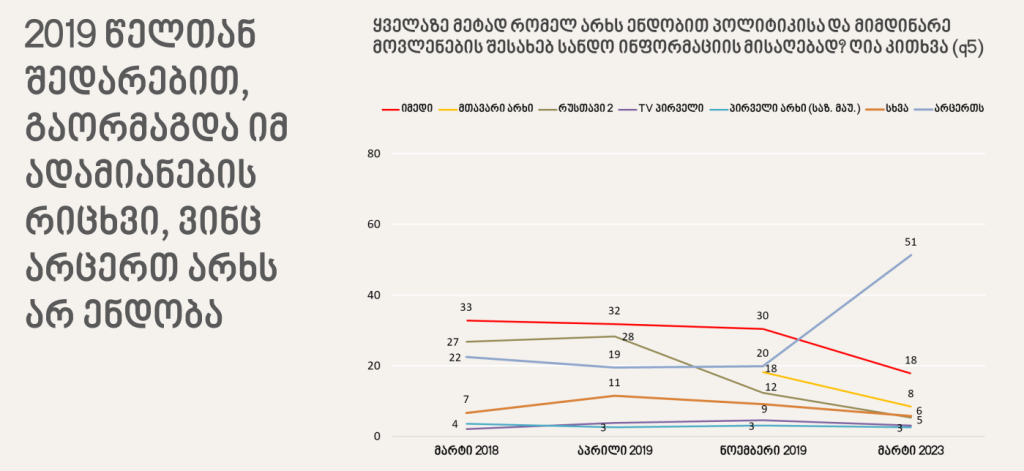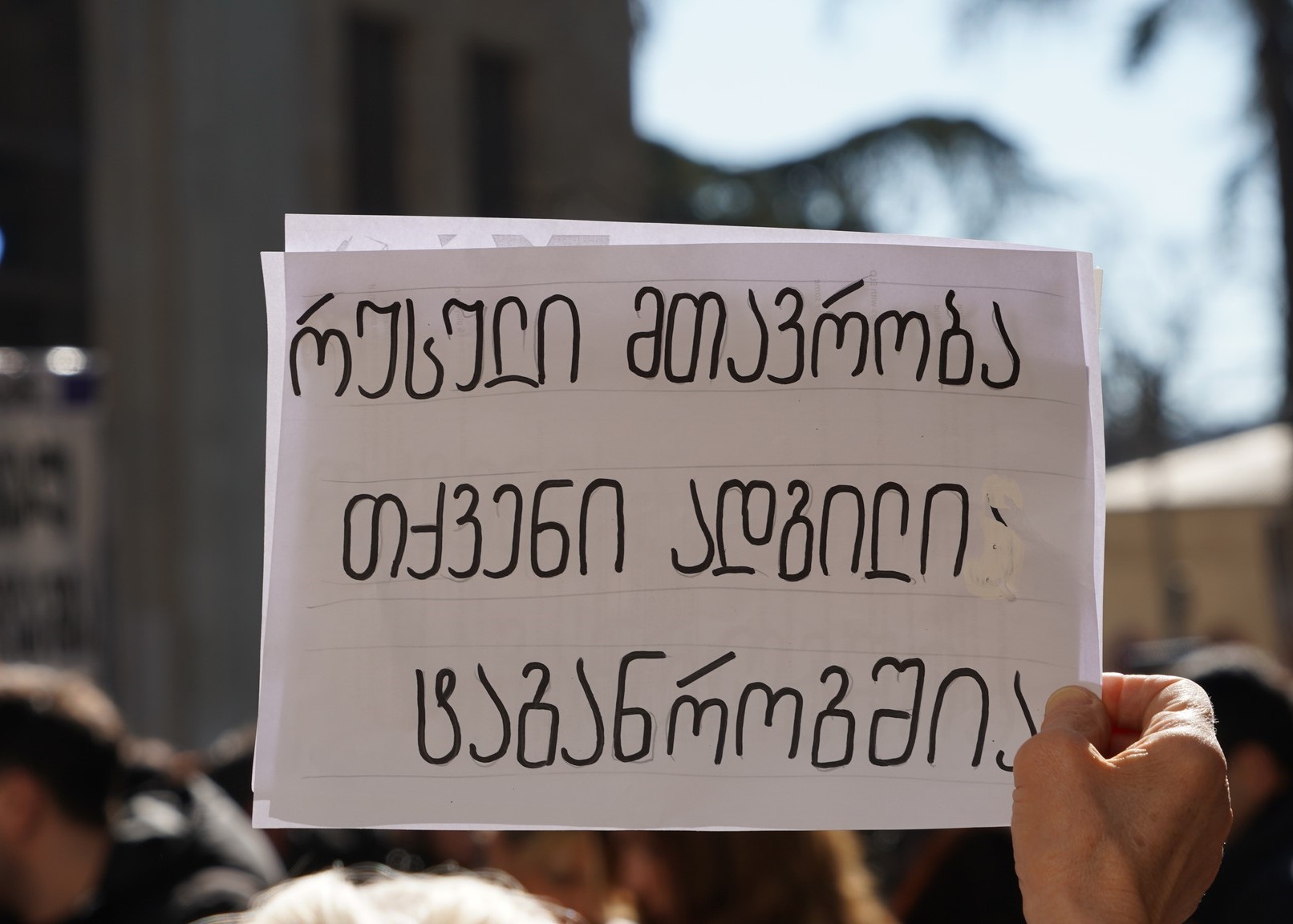Georgian population support for NATO accession remains high - NDI study
Main findings of NDI study
According to a public opinion poll conducted by the National Democratic Institute (NDI) in March 2023, support for joining NATO among the population of Georgia remains consistently high, and a majority of the population wants close cooperation with the European Union.
The study was commissioned by NDI on behalf of CRRC Georgia. Field work was carried out on March 17-23. A total of 1,032 interviews were conducted (response rate 14 percent). The error averages +/- 2% and varies for different answers. All interviews were conducted by telephone survey and respondents were selected by simple random sampling. Interviews were conducted in Georgian, Azerbaijani, Armenian and Russian. The survey is representative of the entire population of Georgia (excluding the occupied territories). The survey is representative of Tbilisi, urban and rural settlements.
According to the study, half of respondents assess the economic situation in Georgia as “bad”. Only nine percent consider Georgia’s economic situation to be “good.”
Half of the population doubts that the government will be able to solve economic problems.
Also, a majority (69 percent) say they now have the same or less financial capacity than they did five years ago.
According to the poll, a record low number of the population – 24 percent – believe that there is at least one political party representing their interests in the country.
To the question: “Is there at least one party in Georgia that expresses your interests?” in March 2023 only 24 percent answered yes, a sharp decline after July and December 2022 (39 percent in July, 31 percent in December).
64 percent of those polled say that no party represents their interests, and nine percent say they don’t know.
14 percent of Georgian Dream supporters and 36 percent of opposition supporters say that no party represents their interests. Among them, young people (18-34-year-olds) stand out with particular skepticism.

According to the same poll, almost half of the population – 47 percent – believes that Georgian Dream does not act in the interests of the people and the country; 61 percent say the same about elected opposition parties.
37 percent of the population say that the ruling Georgian Dream party acts in the interests of the people and the country, and 21 percent believe that opposition parties act in the interests of the people and the country.
18 percent of Georgian Dream supporters believe that the opposition is acting in the interests of the country and the people.
Also, 21 percent believe that the Georgian Dream is acting in accordance with the interests of the country and the people.
Main findings of NDI study

Most of the population is still politically undecided.
The majority of the population does not know or would not name the party closest to their views. According to the NDI, individual party support rates are so low that they cannot be used to predict election results.
17 percent of the population believe that the Georgian Dream is closest to their views, five percent believe that it is the opposition National Movement. According to 57 percent, no party is close to their views, 10 percent say they do not know, seven percent refuse to answer.

The majority of the population does not know or would not name the party they would vote for if parliamentary elections were held tomorrow.
To the question: “If parliamentary elections were held tomorrow, which party would you vote for?” 34 percent say no, 26 percent say they don’t know, nine percent refuse to answer.
20 percent of those polled say they would vote for Georgian Dream in the elections, and five percent for the National Movement.
According to NDI, support for Georgian Dream among the younger age group is relatively low. 25 percent of supporters of the ruling party belong to the age category 55+, 17 percent – 35-54 years old, eight percent – 18-34 years old.

According to a new public opinion poll conducted by NDI, the number of positive reviews of the government’s performance has decreased.
To the question: “How would you rate the activities of the current government?” 43 percent of the population rated it as good, 43 percent as bad. To the same question, 11 percent say they don’t know, while 3 percent refuse to answer.

According to the survey, a majority of citizens want closer political and economic cooperation with the European Union.
According to the study, close political cooperation with the European Union is supported by 54 percent of the population, and economic cooperation by 52 percent; 12 percent support political cooperation with Russia, and 16 percent support economic cooperation.

According to an NDI poll, 82 percent of the population is in favor of Georgia becoming a member of the European Union. EU support is high in all demographic groups.

35 percent of the population believe that the Georgian government is not doing enough for the country’s accession to the European Union.

Popular support for NATO remains consistently high.
According to the survey, support is especially high among young people.
When asked whether the goal of Georgia’s accession to NATO, declared by the Georgian government, was acceptable, the answers were divided as follows:
acceptable – 73 percent
unacceptable – 13 percent
I don’t know – 13 percent

The number of people who do not trust any TV channel has doubled since 2019.
According to the survey results, 51 percent of the population does not trust any TV channel, 18 percent trust Imedi, eight percent trust the opposition Mtavari Arkhi, five percent Rustavi 2, three percent Pirveli TV, three percent public broadcaster and six percent to other channels.

The survey also shows that young people do not trust television, and the population aged 55+ prefers Imedi TV.
Half of Georgian Dream supporters trust the Imedi TV channel, while the other half either trust other channels or do not trust at all.
Main findings of NDI study



















